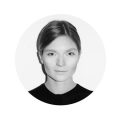
The world’s economy is addicted to fossil energy sources, and the construction industry is one of the heaviest users. Every stage of the building process, from the sourcing of raw materials, the production of building elements, transportation to the site to the construction itself is part of this dependency. The energy and material consumed in the course of this process become inaccessible, and after the end of the building’s lifespan, its remains are being buried on landfills. Given today’s awareness of limited resources, pollution and climate change, it is no longer possible to accept this linear trajectory.
New production processes give the possibility to explore advanced tools that transform global and mass production methods into customized, local, accessible and, by these means, sustainable ones. Advancements in the field of material sciences, as well as living materials, also open up the potentials to nature based or bio-inspired hybrid solutions. A set of computational strategies support the integration of form, material and structure by incorporating physical form-finding strategies with digital analysis and fabrication. Within this context, design methods are being redefined in their consistency.
Our proposal for the GSS MSC 2018 is engaging with this challenge on the material, procedural level. At the core of the concept is a building element made from bioplastics – a range of polymers that do not depend on energy-hungry petro-based industrial infrastructure, but use locally sourced renewable materials as their primary ingredient, and are accessible to distributed modes of production.
Within the GSS18 MSC program, organised in collaboration with Strelka Institute and Shukhov Lab of HSE Graduate School of Urbanism, participants will be investigating new computational and fabrication strategies for production of responsive and sustainable design solutions. Learning both software to hardware, students will be incorporating physical material research and form-finding strategies with digital design, structural analysis and robotic manufacturing methods. From advanced urban theories to public space analysis, from material tests to the digital simulations and design, from design proposal to fabrication of the final prototype – the investigation will be integrating technology, biology and new production methods for generation of the design for hybrid urban element for public space. The final goal of the course will be a design and fabrication of an urban element in 1:1 scale, which potentially will be exhibited at the Afisha Music Festival in Moscow.
During the GSS18 MSC program students will be exposed to a unique environment of applied research by working in collaboration with experts from IAAC, Institute for Advanced Architecture of Catalonia and Shukhov lab of HSE Graduate School of Urbanism. An exclusive research and educational space and all facilities of Shukhov Lab and Strelka Institute will be available for the participants during two weeks of the program. Research and project development will be supported by academic lectures, tutorials and desk crits. with international experts, academics and designers.
IAAC Global Summer School is a full-time two weeks course, 16-29 July 2018, that provides both practical and theoretical knowledge. The program is led by expert tutors, combined with lectures by renowned professionals and academics relevant to the topics to be treated during the course. These will be broadcasted in the different node-cities, all globally connected. Participants will join a global agenda and an international laboratory at their disposal to test their design hypothesis, understanding how design conclusions derived locally can be tested and evolved globally in the different cities where other teams reside.

Maria Kuptsova is an architect, artist, researcher and educator. She holds a Master in Advanced Architecture from the Institute for Advanced Architecture of Catalonia – IAAC (2013). She has worked as a Project Architect at Cloud9, Enric Ruiz-Geli in Barcelona, developing projects in both architectural and urban scale. Maria has been a part of Advanced Architecture Group at IAAC, as a faculty, researcher, european projects and academic programs coordinator. She has been leading a list of design and research projects at IAAC, teaching and curating both graduate and undegraduate academic programs, moderating and organising international conferences and other public events, as well as participating in a list of festivals and exhibitions. Currently Maria is a PhD candidate, as well as researcher and teaching assistant at the University of Innsbruck, Institute of Urban Design, Synthetic Landscape Lab. In her research and design practice Maria aims to enhance responsive interaction models between designed object, human, biologic and digital systems, implementing a new design logic for spatial interventions.

Elena Mitrofanova works in Architecture, Planning, Design and Digital Fabrication. In 2012 graduated Moscow Institute of Architecture as architect-designer. In 2014 took a Master of Advanced Architecture in the Institute for Advanced Architecture of Catalonia – IAAC. There Elena continues her thesis and a research work in alternative energy resources in collaboration with Dr. Paolo Bombelli (Department of Biochemistry, University of Cambridge) – Moss Voltaics project. Currently Elena is working at the HSE Graduate School of Urbanism, Shukhov Lab, as well as teaching at the MARCH – Moscow Architecture School.

Ivan is an engineer, programmer and digital fabrication master. ?Graduated MSFU Faculty of Computer Sciences, Fab Academy studies in Barcelona, intern in Valldaura Lab for Self Sufficiency. Ivan has a wide experience as a tutor, including Digital Fabrication Master at MISiS, Master for Prototyping Future Cities at HSE Graduate School of Urbanism, workshops at FabLab Barcelona, FabLab Moscow, Shukhov Lab, IaaC Summer School, AA visiting Moscow, and others.
Strelka Institute – Bersenevskaya Naberezhnaya, 14/5, Moscow, 119072
Shukhov Lab HSU – Myasnitskaya Ulitsa, 20, Moscow, 101000
IAAC GSS is open to creative and innovative people who are interested in fields such as architecture, urban planning, digital fabrication, design, etc., searching for a multidisciplinary experience in an international environment. No previous skills are required, although CAD design, programming and digital fabrication skills are welcome. The official language of the course is English.
After the course, the participants will have gained theoretical and applicative knowledge about advanced design strategies. They will be familiar with parametric software, data visualization and use of digital machines. The last day of course participants will join a presentation of developed projects reviewed by a renown jury and will receive a Global Summer School Diploma.
Each participant is responsible to investigate which documents are required via the embassies in their country of origin. The school will provide a confirmation letter regarding the participation to the course, and will assist where possible the visa process.
Fee for Moscow is 500€ and includes all material costs needed for the course. No additional registration fee is required. Flight tickets, accommodation and food are not included in the fee. Each participant should bring his/her own computer with the software installed. Further details about the software will be given to the participants upon acceptance.
In order to register to the Global Summer School, participants need to submit the online application form, where they will be asked to fill their personal details and to upload a CV. Portfolio is not required. GSS18 Moscow dates are from 16-29 of July 2018 and applications are open until the 9th of July 2018.
